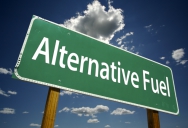
S&Ds demand national binding targets on alternative fuels infrastructure
Date
Mon, 09/24/2018
Sections
Energy
Socialists and Democrats are committed to phasing out fossil fuels and to transforming the European transport landscape in order to make it sustainable for the health of people, for the health of the planet, and also for the health of everyone’s pocket.
Currently 94% of Europe’s transport sector is dependent on oil, 90% of which has to be imported. At the same time transport is the only major economic sector in the EU where greenhouse gas emissions have increased since 1990, thus weakening our efforts to meet the UN Climate Goals agreed on in Paris.
Today, the parliamentary committee on transport backed the proposal by S&D MEP Ismail Ertug to introduce binding national targets in the existing Directive on the deployment of alternative fuels infrastructure. Unfortunately, the binding targets for each member state as foreseen in the European Commission’s proposal were deleted when the Directive was approved in 2014. Now the evaluation of the National Framework Plans (NFP) show the gap between member states and that of the NFPs.
Ismail Ertug, who is the S&D spokesperson and the author of the parliamentary report, said:
“Today’s result is a strong signal that will facilitate the uptake of low- and zero-emission vehicles and therefore the overall goal of decarbonisation. We urge the Commission to accelerate the revision of the Directive, come up with strong infrastructure targets and, most importantly, more funding for alternative fuels infrastructure. We already lost precious time due to the omission of the Commission and the inaction of member states - nevertheless it is not too late yet.
“I am happy that the transport committee followed my recommendation urging the Commission for stronger targets and sufficient public funding. Furthermore, we strongly advocate the need of the rural areas for sufficient infrastructure, as there should be no European region lagging behind in the transition towards low-emission mobility.
“Out of roughly 800.000 charging points envisaged by 2025, only a few more than 100.000 are already in place. For compressed natural gas (CNG) more than two thirds of filling stations are yet to be built. For hydrogen - which is not mandatory under the Directive - the situation is even worse.
“As there are different modes, different types and environments of transport which have their own specific requirements as regards fuels and powertrain technologies, a mix of alternative fuels is the most promising approach in the medium term. Electrification, for instance, might be the most appropriate technology to decarbonise car traffic, whereas for other types of traffic, such as long distance heavy duty transport, decarbonised and low-carbon fuels will be needed. So their availability must be also ensured.”

